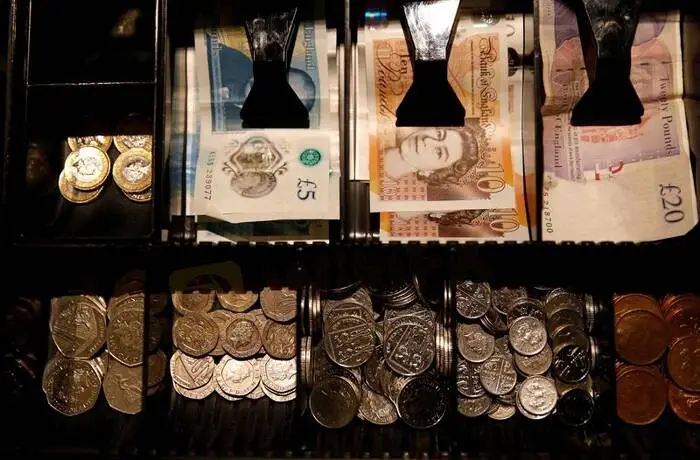简体中文
繁體中文
English
Pусский
日本語
ภาษาไทย
Tiếng Việt
Bahasa Indonesia
Español
हिन्दी
Filippiiniläinen
Français
Deutsch
Português
Türkçe
한국어
العربية
Sterling steady as rate hike expectations grow
Abstract:The pound held at a one-week high against the dollar on Thursday, as expectations mount that Britain’s central bank will act sooner rather than later to hike policy rates in order to combat inflation, which would in turn boost sterling.
The pound held at a one-week high against the dollar on Thursday, as expectations mount that Britains central bank will act sooner rather than later to hike policy rates in order to combat inflation, which would in turn boost sterling.
The pound held at a one-week high against the dollar on Thursday, as expectations mount that Britains central bank will act sooner rather than later to hike policy rates in order to combat inflation, which would in turn boost sterling.
Sterling has edged up this week as inflation and encouraging economic data fuelled speculation the Bank of England (BoE) will act first among major global policymakers to raise rates for the first time since the COVID-19 pandemic hit.
Those expectations were further bolstered by data on Tuesday showing Britain‘s job market had weathered the end of the government’s furlough support scheme, easing a major worry about the risks of tightening monetary policy.
Investors remain wary about the timing of any move, however, after the BoE surprised markets earlier this month by keeping rates steady when many had understood the hike was coming.
At 0852 GMT, sterling was flat against the dollar at $1.3495. It was consolidating gains versus the euro, against which it hit a 21-month high on Wednesday after rising 2.4% in the last two weeks. It is now at 83.99 pence.
While rate hike expectations support the pound for now, analysts at Citi said on Thursday there were longer term concerns for the currency amid wrangling between the European Union and Britain over the latters exit from the trading bloc.
Relations between Brussels and London have soured in recent weeks after Britain, unhappy with the deal it signed up to in 2020, threatened to trigger an emergency clause known as Article 16, potentially leading to a trade war.
Such an action could send sterling as low as $1.25, the Citi analysts warned, if the EU imposed tariffs in response.
(Reporting by Lawrence White; Editing by Mark Potter)

Disclaimer:
The views in this article only represent the author's personal views, and do not constitute investment advice on this platform. This platform does not guarantee the accuracy, completeness and timeliness of the information in the article, and will not be liable for any loss caused by the use of or reliance on the information in the article.
WikiFX Broker
Latest News
Spotware Unveils cTrader Store, Global Marketplace for Algo Creators
Elderly Trader Loses RM2.1M in WhatsApp Forex Scam
Gigamax Scam: Tracking Key Suspects in RM7 Million Crypto Fraud
CFI Partners with MI Cape Town, Cricket Team
Doo Financial Expands Reach with Indonesian Regulatory Licenses
WikiFX Review: Is IQ Option trustworthy?
5 Questions to Ask Yourself Before Taking a Trade
Quadcode Markets: Trustworthy or Risky?
Avoid Fake Websites of CPT Markets
Webull Canada Expands Options Trading to TFSAs and RRSPs
Currency Calculator



